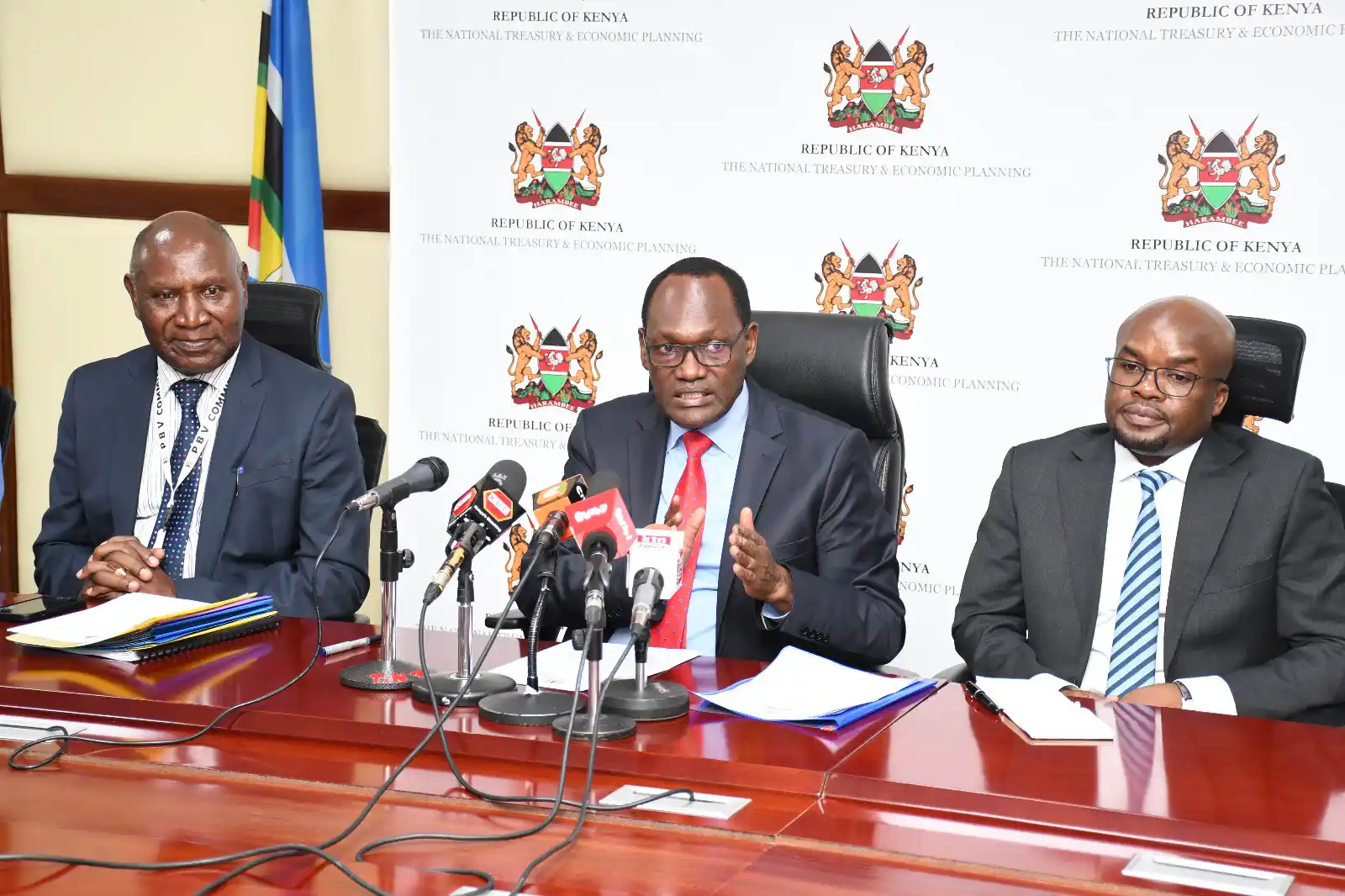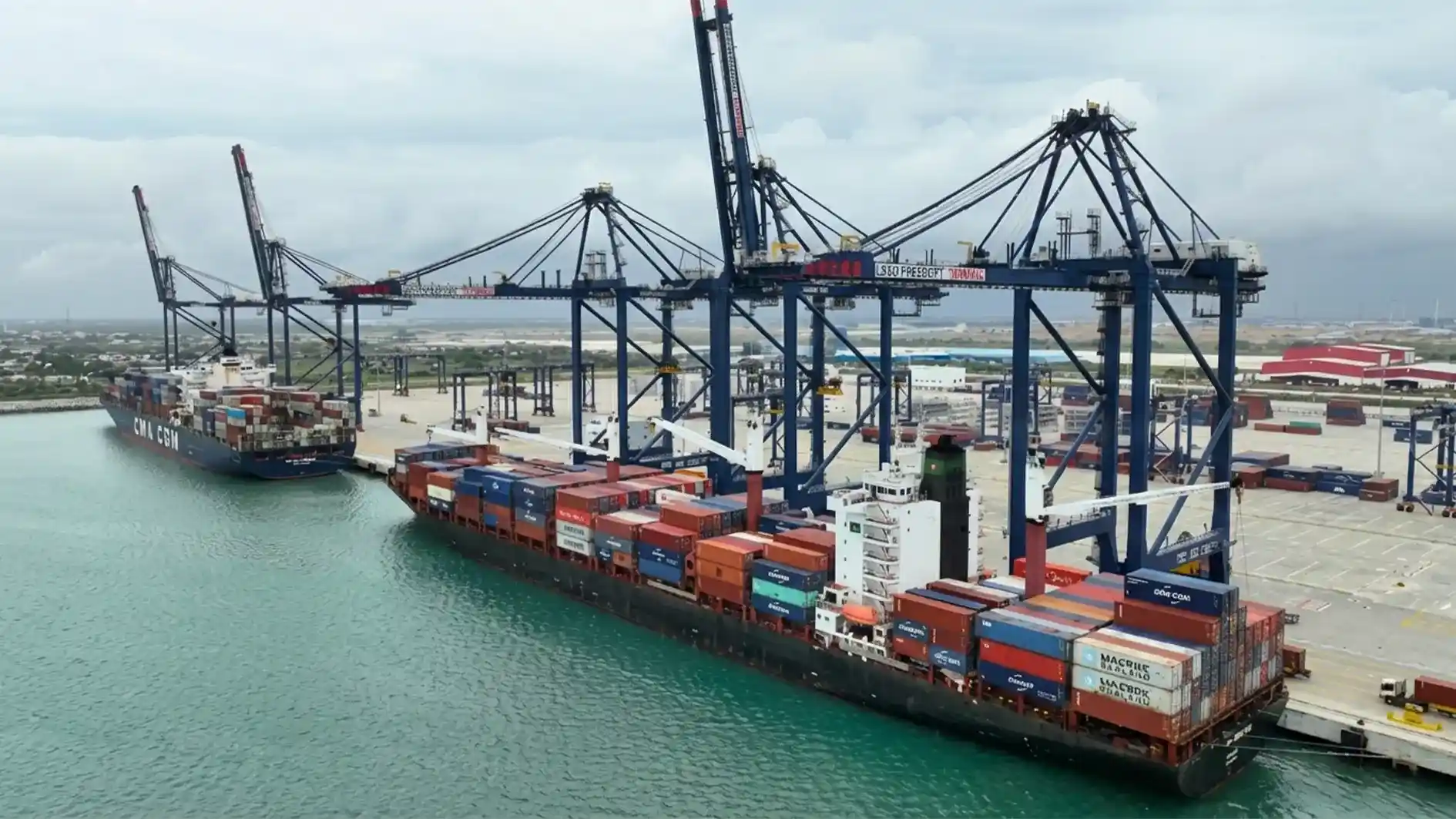In a decisive step aimed at boosting fiscal discipline and stimulating economic activity, Kenya’s Pending Bills Verification Committee has approved the payout of Ksh 236 billion from the more than Ksh 600 billion inherited by the Kenya Kwanza administration. Principal Secretary for the National Treasury and Economic Planning, Chris Kiptoo, announced the approval during his address at the DTB Economic and Sustainability Forum in Nairobi, highlighting that a significant portion of these funds will be directed toward settling dues owed to small business suppliers and road contractors. This measure is expected to ease financial pressures on enterprises that rely heavily on government contracts and to create a ripple effect throughout Kenya’s broader economy.
Addressing Inherited Fiscal Liabilities
When the Kenya Kwanza administration took office, it inherited a challenging fiscal legacy that included over Ksh600 billion in pending bills. Pending bills represent obligations for goods and services that the government has received but not yet paid for. These liabilities have long been a source of inefficiency and uncertainty in public finance management, affecting everything from supplier confidence to overall fiscal stability.
Chris Kiptoo emphasized that the government is making significant progress in addressing these pending bills. “A significant portion of these funds will go towards settling dues owed to small business suppliers and road contractors, easing financial pressures on enterprises that rely on government contracts,” Kiptoo explained. By prioritizing these payments, the administration aims not only to honor its commitments but also to restore trust among key stakeholders in the economy.
Enhancing Fiscal Discipline and Transparency
Kiptoo’s remarks at the forum underscored the government’s commitment to a series of reforms designed to enhance efficiency and transparency in public finance management. Among these measures are the implementation of the Single Treasury Account, the adoption of e-procurement policies, and the enforcement of zero-based budgeting. Each of these initiatives plays a crucial role in ensuring that public funds are used judiciously and that every shilling is accounted for.
Single Treasury Account and E-Procurement
The Single Treasury Account (STA) is a mechanism that consolidates government revenues and expenditures into one central account. This reform not only streamlines cash management but also reduces the risk of fund diversion and mismanagement. The adoption of an e-procurement system further enhances transparency by digitizing the procurement process, thereby reducing the opportunities for corruption and inefficiency. These reforms are particularly significant in the context of pending bills, as they help create a more robust framework for tracking government obligations and ensuring timely payments.
Zero-Based Budgeting and Public-Private Partnerships
Zero-based budgeting is another critical tool in the administration’s arsenal. Unlike traditional budgeting methods that build on previous years’ allocations, zero-based budgeting requires every department to justify its expenditures from scratch. This approach ensures that resources are allocated based on current needs rather than historical patterns, leading to more efficient spending. Additionally, the government is increasingly turning to public-private partnerships (PPPs) to finance and manage infrastructure projects. By leveraging private sector expertise and capital, PPPs can drive innovation and efficiency, further alleviating fiscal pressures.
Strategic Focus on Key Growth Sectors
In addition to addressing pending bills, the National Treasury is channeling efforts toward stimulating economic growth by focusing on key sectors. Kiptoo outlined that the ministry will concentrate on critical industries in the upcoming financial year, with a strategic emphasis on sectors that hold the potential to drive economic expansion and job creation.
Bolstering Agricultural Output and Exports
Agriculture remains a cornerstone of Kenya’s economy. The government is placing special emphasis on enhancing agricultural productivity and boosting exports. Strategic initiatives are being implemented to support vital sub-sectors such as tea, edible oil, cotton, leather, and dairy. By improving value chains and modernizing agricultural practices, the administration aims to increase both domestic supply and export revenues, thereby strengthening Kenya’s trade balance.
Harnessing Natural Resources and the Blue Economy
The ministry is also prioritizing industries related to natural resources and the emerging blue economy. The blue economy—encompassing maritime, fisheries, and ocean-based economic activities—offers significant untapped potential. Investments in this sector are expected to not only create jobs but also to enhance Kenya’s revenue generation capabilities through sustainable exploitation of marine resources. Similarly, sectors like building materials are being positioned to capitalize on the country’s ongoing infrastructural development.
Stimulating Private Sector Lending Through the Credit Guarantee Scheme
To further bolster economic growth, the government plans to transfer the Credit Guarantee Scheme to a state-owned entity. Currently operated in collaboration with seven banks, this scheme ensures partial coverage of defaults, thereby mitigating the risks associated with lending to small and medium enterprises (SMEs). By transferring management of the scheme to a dedicated state-owned entity, the government aims to stimulate private sector lending, which is crucial for expanding access to finance for SMEs and driving entrepreneurial activity.
Macroeconomic Stability and International Partnerships
Kiptoo also stressed that maintaining the stability of Kenya’s macroeconomic environment is a top priority. The government continues to work closely with the International Monetary Fund (IMF) to ensure fiscal discipline and economic resilience. The partnership with the IMF has been instrumental in guiding Kenya’s fiscal policies, particularly in times of economic uncertainty.
Fiscal Discipline and Debt Management
A central challenge for Kenya, like many emerging economies, is managing its growing public debt. With pending bills now being actively addressed, the government is taking steps to reduce the overall debt burden. By settling obligations with small business suppliers and road contractors, the administration hopes to create a more stable economic environment that is conducive to growth. Furthermore, reducing pending bills can improve Kenya’s credit rating and lower borrowing costs, ultimately leading to a healthier fiscal outlook.
International Support and Confidence
The continued collaboration with the IMF sends a strong signal to international investors and development partners that Kenya is committed to reform and fiscal discipline. This cooperation not only provides technical assistance but also boosts market confidence, which is essential for attracting foreign direct investment (FDI). As Kenya implements these reforms, it is expected that improved fiscal management will pave the way for further economic development and integration into global markets.
Banking Sector Optimism and Credit Expansion
The banking sector has reacted positively to these developments, with financial institutions expressing optimism about Kenya’s economic recovery. DTB Kenya, one of the country’s leading banks, projects that lending to individuals and small businesses could double within the next decade from the current level of approximately $32 billion if the current growth momentum is sustained.
Confidence from DTB Kenya
Murali Natarajan, CEO of DTB Kenya, emphasized the resilience of the economy and the significant progress made in addressing long-standing fiscal challenges. “When I look at the resilience of the economy and the track record of having dealt with so many challenges, that gives me immense confidence about going forward,” Natarajan said. The anticipated increase in credit availability is expected to stimulate private sector growth, creating a virtuous cycle of investment, job creation, and economic expansion.
Role of Banks in the Economic Recovery
Banks play a critical role in translating government reforms into tangible economic benefits. By expanding credit to SMEs and individuals, financial institutions can drive consumption and investment, thereby contributing to overall economic growth. The positive outlook expressed by DTB Kenya is reflective of broader trends in the sector, as banks increasingly see the reforms in public finance management as a foundation for a more robust and dynamic economy.
Broader Economic Implications and Challenges
While the approval of Ksh236 billion in pending bill payments is a significant achievement, it is only one piece of a much larger puzzle. Kenya’s economic landscape is characterized by both opportunities and challenges, many of which have deep historical roots.
Historical Context of Fiscal Inefficiencies
Kenya’s fiscal management challenges are not new. The accumulation of pending bills over successive administrations has long been a symptom of systemic inefficiencies in public finance management. These inefficiencies have hindered economic growth and eroded public trust in government institutions. The current administration’s aggressive approach to settling pending bills is an attempt to break this cycle, restore confidence, and set the stage for sustainable development.
The Role of Technology and Innovation
In addressing these challenges, the government is increasingly turning to technology and innovation. The implementation of e-procurement systems, for example, represents a significant step toward reducing corruption and increasing transparency in public spending. By leveraging digital tools, the administration hopes to create a more efficient and accountable system that can better manage public funds and ensure that payments are made promptly and accurately.
Challenges Ahead: Structural and Implementation Risks
Despite the positive developments, significant challenges remain. One of the primary risks is the potential for implementation delays and bureaucratic resistance. Large-scale reforms often face obstacles, including entrenched interests and institutional inertia. Moreover, the success of these measures depends on the continuous commitment of political leaders and public officials to uphold the principles of transparency and accountability.
Another challenge is ensuring that the benefits of these reforms are distributed equitably across all segments of society. While settling pending bills can improve the business environment for small suppliers and contractors, broader structural issues such as income inequality and regional disparities will require additional targeted interventions.
Comparative Perspectives: Lessons from Other Economies
Kenya’s approach to resolving pending bills and improving fiscal management can be compared to similar initiatives in other emerging economies. Countries in Latin America and Eastern Europe have faced analogous challenges and have implemented reforms aimed at enhancing public finance management and stimulating economic growth.
Latin American Experiences
Several Latin American countries have undertaken comprehensive fiscal reforms to address long-standing issues related to pending obligations and inefficient public spending. For instance, nations like Chile and Colombia have introduced measures such as centralized treasury systems and enhanced e-procurement processes, which have yielded significant improvements in fiscal discipline and transparency. Kenya’s current reforms share similarities with these approaches, and policymakers are keenly watching international best practices to inform future strategies.
Eastern European Reforms
Eastern European economies, which underwent significant transitions after the fall of communism, offer another valuable point of comparison. In many of these countries, the implementation of modern budgeting techniques, such as zero-based budgeting, and the establishment of robust public-private partnerships have played critical roles in stabilizing public finances. By adapting some of these strategies to its own context, Kenya hopes to achieve a similar transformation in its fiscal management framework.
Global Best Practices in Public Finance Management
International organizations such as the International Monetary Fund and the World Bank have long advocated for reforms that enhance transparency and efficiency in public finance management. Kenya’s ongoing partnership with the IMF is a testament to its commitment to these global best practices. As the country continues to implement reforms, it is likely to benefit from technical assistance and knowledge sharing, further accelerating its path toward fiscal stability.
Future Outlook: Economic Growth and Fiscal Sustainability
Looking ahead, the successful approval and disbursement of Ksh236 billion in pending bill payments is expected to have a positive ripple effect across Kenya’s economy. By settling long-standing obligations, the government is laying the groundwork for a more stable and predictable fiscal environment—one that is essential for fostering economic growth and attracting both domestic and foreign investment.
Stimulating Private Sector Growth
One of the most promising aspects of the current reforms is their potential to stimulate private sector growth. By easing financial pressures on small business suppliers and road contractors, the government is directly supporting sectors that are critical for economic development. Moreover, the planned transfer of the Credit Guarantee Scheme to a state-owned entity is expected to boost lending to SMEs, which are the backbone of the economy. Enhanced access to credit will enable these enterprises to expand operations, create jobs, and contribute to overall economic dynamism.
Enhancing Infrastructure and Public Services
The pending bills payout is also expected to have a significant impact on Kenya’s infrastructure development. Many of the outstanding obligations pertain to road construction and maintenance—sectors that are vital for improving connectivity and boosting trade. By settling these dues, the government can ensure that contractors and suppliers receive timely payments, which in turn will facilitate the completion of critical infrastructure projects. Improved infrastructure is a key driver of economic growth, as it reduces transportation costs, enhances market access, and attracts further investment.
Long-Term Fiscal Sustainability
In the long run, the reforms implemented by the Kenya Kwanza administration are designed to foster a culture of fiscal discipline and accountability. By addressing pending bills and modernizing public finance management, the government is taking important steps toward reducing waste and improving the allocation of resources. These measures, if sustained over time, could help stabilize Kenya’s public finances, lower borrowing costs, and enhance overall economic resilience.
Concluding Reflections
The approval of Ksh236 billion in pending bill payments by the Pending Bills Verification Committee marks a significant milestone in the Kenya Kwanza administration’s efforts to overhaul public finance management. As Treasury PS Chris Kiptoo noted at the DTB Economic and Sustainability Forum, settling these obligations will alleviate financial pressures on key sectors and contribute to a more resilient and diversified economy. At the same time, the government’s broader reforms—including the implementation of the Single Treasury Account, e-procurement policies, zero-based budgeting, and the strategic focus on high-growth sectors—are poised to drive long-term economic development.
While challenges remain—ranging from the risk of bureaucratic inertia to the need for equitable distribution of benefits—the positive steps taken today signal a commitment to transforming Kenya’s fiscal landscape. As the government works in close partnership with international institutions like the IMF and draws on lessons from global best practices, the outlook for Kenya’s economy appears increasingly promising.
By addressing long-standing fiscal inefficiencies and fostering an environment conducive to private sector growth, the current reforms are not only expected to stabilize public finances but also to create a foundation for sustainable economic progress. As Kenya continues on this transformative journey, the coming years will be critical in determining whether these bold measures can deliver on their promise of a more prosperous and resilient future for all citizens.
Ready to take your career to the next level? Join our dynamic courses: ACCA, HESI A2, ATI TEAS 7 , HESI EXIT , NCLEX – RN and NCLEX – PN, Financial Literacy!🌟 Dive into a world of opportunities and empower yourself for success. Explore more at Serrari Ed and start your exciting journey today! ✨
photo source: Google
By: Montel Kamau
Serrari Financial Analyst
21st February, 2025
Article, Financial and News Disclaimer
The Value of a Financial Advisor
While this article offers valuable insights, it is essential to recognize that personal finance can be highly complex and unique to each individual. A financial advisor provides professional expertise and personalized guidance to help you make well-informed decisions tailored to your specific circumstances and goals.
Beyond offering knowledge, a financial advisor serves as a trusted partner to help you stay disciplined, avoid common pitfalls, and remain focused on your long-term objectives. Their perspective and experience can complement your own efforts, enhancing your financial well-being and ensuring a more confident approach to managing your finances.
Disclaimer: This article is for informational purposes only and does not constitute financial advice. Readers are encouraged to consult a licensed financial advisor to obtain guidance specific to their financial situation.
Article and News Disclaimer
The information provided on www.serrarigroup.com is for general informational purposes only. While we strive to keep the information up to date and accurate, we make no representations or warranties of any kind, express or implied, about the completeness, accuracy, reliability, suitability, or availability with respect to the website or the information, products, services, or related graphics contained on the website for any purpose. Any reliance you place on such information is therefore strictly at your own risk.
www.serrarigroup.com is not responsible for any errors or omissions, or for the results obtained from the use of this information. All information on the website is provided on an as-is basis, with no guarantee of completeness, accuracy, timeliness, or of the results obtained from the use of this information, and without warranty of any kind, express or implied, including but not limited to warranties of performance, merchantability, and fitness for a particular purpose.
In no event will www.serrarigroup.com be liable to you or anyone else for any decision made or action taken in reliance on the information provided on the website or for any consequential, special, or similar damages, even if advised of the possibility of such damages.
The articles, news, and information presented on www.serrarigroup.com reflect the opinions of the respective authors and contributors and do not necessarily represent the views of the website or its management. Any views or opinions expressed are solely those of the individual authors and do not represent the website's views or opinions as a whole.
The content on www.serrarigroup.com may include links to external websites, which are provided for convenience and informational purposes only. We have no control over the nature, content, and availability of those sites. The inclusion of any links does not necessarily imply a recommendation or endorsement of the views expressed within them.
Every effort is made to keep the website up and running smoothly. However, www.serrarigroup.com takes no responsibility for, and will not be liable for, the website being temporarily unavailable due to technical issues beyond our control.
Please note that laws, regulations, and information can change rapidly, and we advise you to conduct further research and seek professional advice when necessary.
By using www.serrarigroup.com, you agree to this disclaimer and its terms. If you do not agree with this disclaimer, please do not use the website.
www.serrarigroup.com, reserves the right to update, modify, or remove any part of this disclaimer without prior notice. It is your responsibility to review this disclaimer periodically for changes.
Serrari Group 2025
















